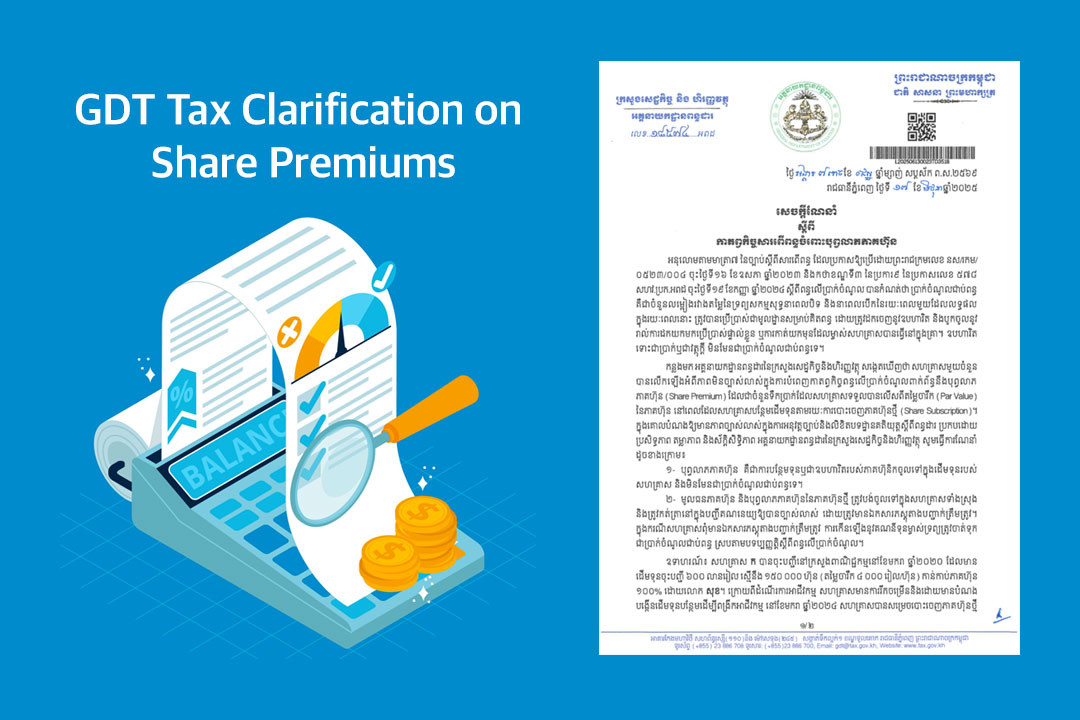GDT Clarifies Tax Obligations for Share Premiums in Cambodia – Tax Update

The General Department of Taxation (GDT) has issued an instruction further clarifying tax obligations related to share premiums in Cambodia.
The instruction responds to business concerns over the tax treatment of capital received by enterprises in excess of the par value of shares, and clarifies that share premiums are not subject to tax.
The legal basis for the tax clarification is:
- Article 7 of the Tax Law (Royal Decree No. NS/RKM/0523/004 dated May 16, 2023).
- Paragraph 3 of Article 9 of Prakas No. 578 (dated September 19, 2024, on Income Tax).
How is Taxable Income Determined?
According to the law:
- Taxable income is the difference in net assets (assets minus liabilities) between the beginning and end of a tax year.
- This figure is adjusted by:
- Adding any personal withdrawals or earlier deductions taken by the business owner.
- Subtracting allowable business expenses.
What is a Share Premium?
A share premium occurs when a company issues new shares at a price higher than their par (face) value. For example, if a company issues shares with a par value of KHR 4,000 at KHR 10,000 per share, the KHR 6,000 riel difference is the share premium.
Watch a short in Khmer explaining the GDT's latest guidance on share premiums:
GDT’s Key Guidance on Share Premiums
- According to the GDT, share premiums are not considered taxable income; they are treated as capital contributions from shareholders.
- All share capital and share premiums must be:
- Fully paid into the company.
- Properly recorded in accounting records.
- Supported by clear documentation (e.g., share subscription agreements, payment records).
NOTE: If documentation is missing, the capital injection may be reclassified as taxable income.